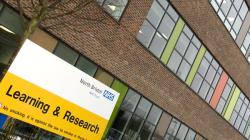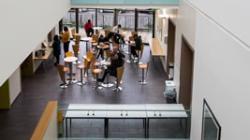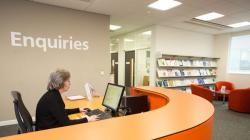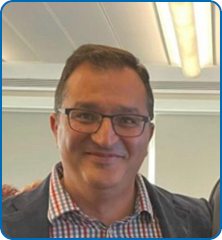Senior Research Associate (BSLTRU)
I am a Clinical Academic Speech and Language Therapist. I qualified as a Speech and Language Therapist in 2005 with an MSc in Speech and Language Sciences from University College London and have spent time working clinically in different clinical settings in the UK and New Zealand including, acute hospital in-patient settings with both adults and children, a craniofacial unit, a child development centre and specialist cleft lip and palate services. I completed a Post Graduate Certificate in Cleft Palate Studies at the University of Sheffield in 2011 and was awarded my PhD by the University of Bristol in 2021. My PhD was completed as part of a Health Education England (HEE)/National Institute for Health and Care Research (NIHR) Clinical Doctoral Research Fellowship. I investigated the relationship between different speech input processing skills and speech articulation at the age of 5 years in children born with a cleft palate.
I have been Lead Specialist Speech and Language Therapist for Cleft.NET.East, the regional cleft lip and palate service for the East of England based at Addenbrooke’s Hospital in Cambridge since January 2017. I am also a member of the National Institute of Health Research (NIHR), Clinical Research Network Children Early Career Researchers in Cleft and Craniofacial Conditions and Cleft and Craniofacial Conditions Clinical Studies Groups.
In my part-time SRA role at the BSLTRU, I work with The Cleft Collective cohort studies including the Speech and Language cohort, and work on cleft related studies, some of which use data from The Cleft Collective resource.
Current research
Understanding the impact of the COVID-19 pandemic on the early speech and language development of children born with cleft lip and/or palate.
Investigator: Lucy Southby, Yvonne Wren, Amy Davies, Sharon Baker, Helen Extence, Neil Brierley
Timescale: January - December 2023
Funder: CLEFT Bridging the Gap Charity https://www.cleft.org.uk/
During the COVID-19 pandemic, treatments for children born with a cleft were often delayed and the environment that young children were exposed to was different because of lock downs, social distancing and face masks. This research aims to understand whether these differences from the pandemic have had an impact on the early speech and language development of children born with a cleft. Using data from The Cleft Collective cohort studies, this work will describe the early speech and language skills of children born with a cleft (up to age 2 years) who were born just before or during the pandemic and compare them to children who reached age two years before the pandemic started.
This study uses existing data from The Cleft Collective resource (http://www.bristol.ac.uk/dental/cleft-collective/professionals/access/).
Selected publications
• Southby, L., Harding, S., Davies, A., Lane, H., Chandler, H. & Wren, Y. (2022) Parent/Caregiver Views of the Effectiveness of Speech-Language Pathology for Children Born With Cleft Palate Delivered via Telemedicine During COVID-19. Language, speech, and hearing services in schools. pp.1-10.
• Southby, L., Harding, S., Davies, A., Fell, M. & Wren, Y. (2021) Speech-Language Pathology Provision During the COVID-19 Pandemic for Children Born With Cleft Palate in the United Kingdom—Parent/Caregiver Perspectives and Experiences. Perspectives of the ASHA Special Interest Groups. 6(6), pp.1809-1819.
• Southby, L., Harding, S., Phillips, V., Wren, Y. & Joinson, C. (2021) Speech input processing in children born with cleft palate: A systematic literature review with narrative synthesis. International Journal of Language & Communication Disorders. 56(4), pp.668-693.












